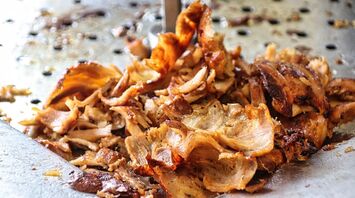Doner in Germany: Culinary Bridge Between Cultures Under Threat

While traveling through Germany, it's hard to miss the doner kebab—juicy meat with vegetables and sauces, wrapped in flatbread or pita. This dish, introduced by Turkish migrants in the 1970s, has become an integral part of German street food and a symbol of the country's multicultural enrichment.
Berlin, in particular, is famous for its variety of doner. Here, travelers can try a wide range of versions of the dish, from classic recipes with lamb to modern interpretations with chicken, turkey, or even vegetarian alternatives. Doner in Germany has adapted to local tastes, offering different sauces and garnishes, making each visit to a doner shop a unique experience.
However, behind the culinary success of doner lie complex questions about cultural ownership and trade rights. In the past, there have been discussions about the possible registration of the name "doner" as a Guaranteed Traditional Specialty (GTS), which could limit the use of this term and set strict production standards. Such measures could potentially affect thousands of small businesses in Germany that have adapted the recipes to local preferences.
The situation surrounding the potential standardization of doner raises important questions about preserving cultural traditions and supporting local innovation. For travelers, it’s a reminder of how food can serve as a bridge between cultures, bringing people together and opening up new avenues of understanding.
Ultimately, doner kebab in Germany is more than just a popular dish. It is a living history that can be tasted, and a symbol of how culture and gastronomy intertwine to create a unique experience for anyone who embarks on this culinary journey.



















